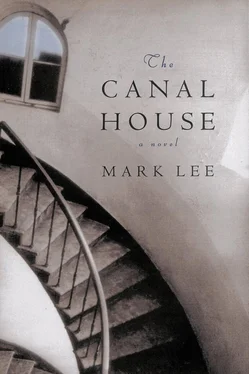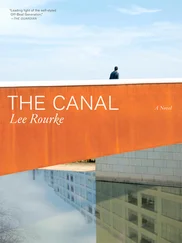Jenkins looked down at the dead soldiers and shook his head. “Who covered up the bodies?” he asked.
“Daniel and I.”
“Thank you, Mr. Bettencourt. That was a decent thing to do.”
I stepped through a hole in the chain-link fence and wandered across the tennis court. A rolled-up blue blanket lay near a suitcase. I assumed that the blanket was wrapped around a quilt until I saw a tuft of black hair. It was the girl who had died while I took her picture. The girl’s mother had covered the body before she followed the church truck to Dili.
Standing in the bright sunshine, I realized that I had never come back to any of my photographs. I had become an absurd American movie, cutting quickly from one image to another, but never stopping to focus on one thing. For the first time I had looped back—and here was my old photograph, wrapped in a blue blanket while the gulls spiraled overhead.
Wearing medical gloves, Jenkins and his men picked up Gurung’s body and slipped it into a black plastic bag. “Careful. Careful,” Jenkins whispered as if the sergeant was asleep and Jenkins didn’t want to wake him.
The young Australian lieutenant got a message on his portable radio and then walked across the tennis court. “Mr. Bettencourt, would you please come with me.”
“Why? What’s going on?”
“We found something.”
“Found what?”
“Something that concerns Mr. McFarland. It’s up in the village.”
The lieutenant and I got back into the Land Rover and he drove me over to the destroyed village mercado . We walked through the concrete columns, ashes all about us, clinging to our shoes. A concrete drainage ditch surrounded the mercado and three Rangers stood near one section of it. They stepped away as we approached them and then I saw Daniel lying on his back in an awkward posture. His face was unmarked, but he had been shot at close range in the chest and stomach. A pool of blood had formed beneath his body and some of it had trickled down the slanted ditch. His socks and shoes had been stolen.
“Is that your friend?” the lieutenant asked.
“Yes.” My voice was a harsh whisper. It didn’t sound like it was coming from me.
“I’m sorry, Mr. Bettencourt. Bad luck all around.”
Without thinking, I raised my Nikon and took a picture of the body. The click of the shutter ended something, as if I’d cut a taut string with a very sharp knife.
WHEN I WAS COVERING the earthquake in Turkey, I met a woman whose husband and children had been crushed inside their apartment building. Instead of weeping and tearing her clothes she wandered around Adana looking for her lost cat. I thought she was crazy when I took her photograph, but now I understood. When there’s too much grief to handle, part of your brain clicks off and you concentrate on the small details that surround you. At the end of time, when Judgment Day finally arrives, a great many of us will be rearranging the cereal boxes in the pantry or cleaning out the shower stall.
CAPTAIN JENKINS AND his Gurkhas appeared at the mercado a few minutes later. They knelt beside Daniel and placed him in one of the bags; Jenkins tied up the cords. I was watching Daniel disappear, but there was something false about the moment. I could still hear his voice and see his face in my mind. All those memories had a greater reality than the body in front of me.
The four bodies were loaded into an armored personnel carrier and we followed it back to Dili. There weren’t any civilian hospitals or funeral homes in Dili and so we took the bodies to the new Interfet camp near the airport and lay them on the wooden floor of an army tent. When the job was done, Jenkins snapped to attention and saluted the three dead soldiers. He glanced at me, then walked over to Daniel and saluted him as well.
“Don’t worry about the bastards who killed your friend,” Jenkins said. “We’ll track them down before they reach the border. There’s no justice in this world unless you make it yourself.”
Jenkins left me alone. I sat down on the floor of the tent and stared at the body bag. It was my responsibility to tell Julia what had happened, but that demanded more strength than I had at the moment. For most of my life I had avoided having any kind of friend. I had been a coward with my heart, preferring to watch the pain or happiness of others. Daniel had ignored my defenses. Our friendship had occurred before I was even aware of it. You think you’re on a separate journey but then you suddenly realize that you’re traveling together.
I don’t know how long I stayed in the tent. Sunlight came through one of the mesh windows and I watched a patch of brightness move slowly toward Daniel’s body. When the light touched the body I told myself I was going to do something—stand up, leave, go back to the Seria —but the moment passed and I remained on the floor. Motes of dust were in the air and I watched them float upward and downward like wayward atoms.
All of a sudden, I heard Richard’s voice outside the tent. “Is this it?” he asked. “Is this the one?”
Richard pushed back the canvas flap and entered the tent, followed by Julia. Billy and Major Holden were with them. Someone had already told Julia that Daniel was dead, but I could tell that she didn’t believe it. I jumped up as she came toward me with a frantic intensity; if she could find Daniel, just find him, then everything would be all right.
“Nicky, they told me that—”
I didn’t say anything, just nodded and motioned to the body. Julia knelt down beside Daniel, hesitated, and looked away. I watched her struggle with the pain, then gather her strength and untie the top three cords. She hesitated again, pushed back the heavy plastic and exposed Daniel’s face.
No one spoke. Richard and the others stood there, watching. Julia raised her hand to her lips and kissed her fingers, then touched Daniel’s lips.
“This is all my fault, Nicky. I shouldn’t have let Daniel go with us. We shouldn’t have gone at all.”
She stood and I held her and felt her grief pass through my body. Then Richard touched Julia’s shoulder and coaxed her away from me.
“Stay here and help,” he told Billy. “I’ll call you when we get to Australia.” Major Holden pulled back the tent flap and I saw that Collins and Briggs were waiting outside. “This way,” Richard said softly. “This way.”
And then she was gone.
Major Holden drove them over to the airstrip and they were given seats on the first flight out. I found out later that a doctor met the plane in Darwin. Julia had became hysterical and was given a strong sedative. Richard chartered a plane to Singapore, then another plane to London.
THE DEAD GURKHAS were flown to Nepal in three sealed coffins and transported to the hill country west of Kathmandu. It was a minor news story, with photographs. Gurkhas from the London regiment played the bagpipes during the funeral.
I REMAINED IN East Timor and tried to arrange Daniel’s burial. None of the publications he worked for knew how to find his family. I had to work backward through his various jobs until an editor at the Seattle Times searched their old personnel records and found the name and address of his father. Sergeant McFarland had left the air force; it took a dozen more phone calls before I got a number in Tulsa, Oklahoma. A woman answered and I wondered if McFarland had remarried. “Ned! It’s long distance!” she shouted and Daniel’s father came to the phone.
He didn’t seem surprised when I told him the news. “I knew Daniel was doing some dangerous things, but he wasn’t going to stop. When he called me up two years ago, I told him he should come back home and get a job with an American newspaper.”
Читать дальше












